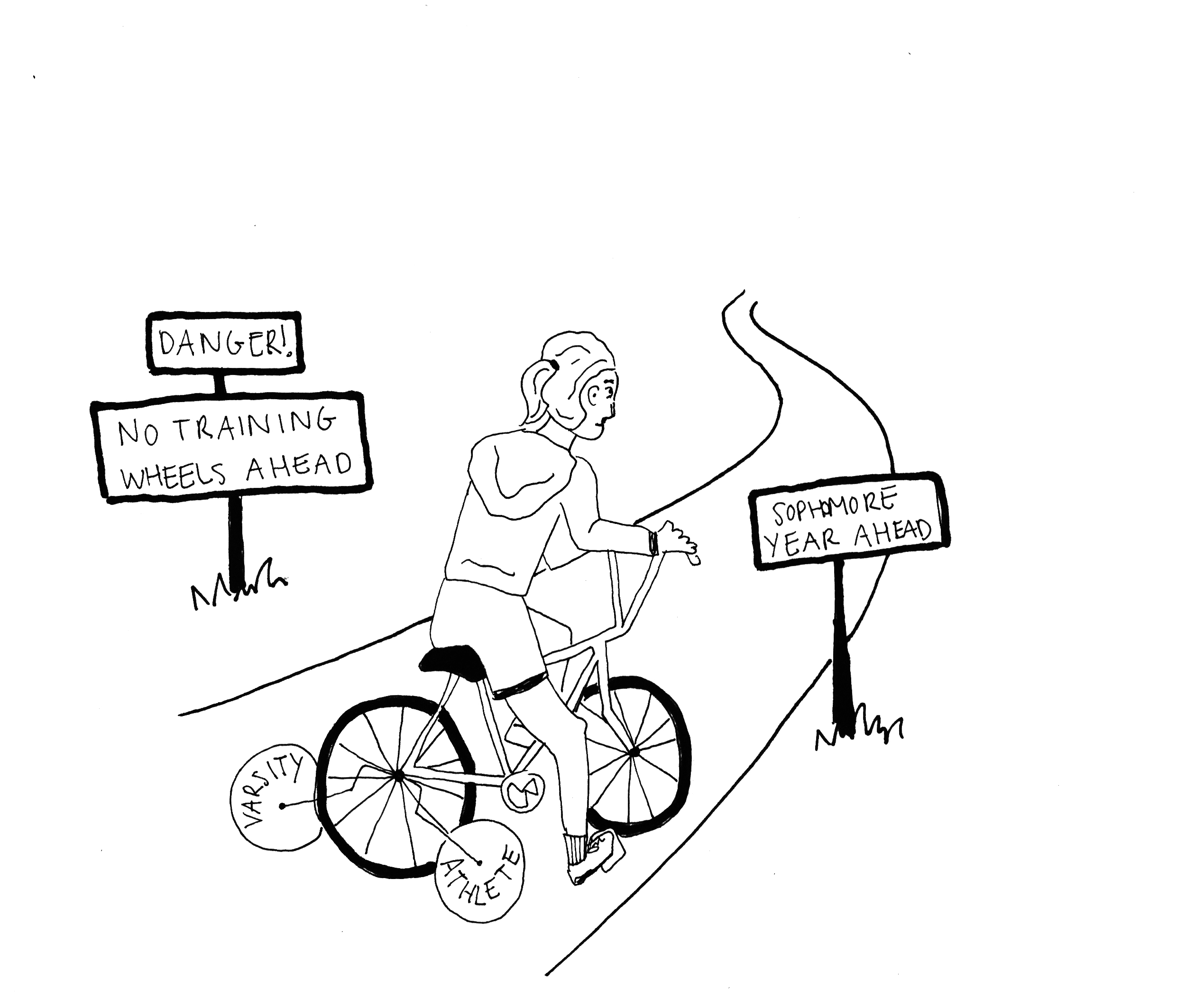Take a leap: quit athletics while you’re ahead
February 1, 2019
 This
piece represents the opinion of the author
.
This
piece represents the opinion of the author
.
At Bowdoin, where close to half of the student body participates in athletics, we all know someone on a sports team. Almost as likely, is the chance of knowing someone who has quit a sports team—especially during sophomore year. Interestingly, during students’ second years, many athletes decide to quit their respective teams. Off the top of my head, I can think of 11 people, including myself, who have quit teams their sophomore year. To some, the correlation between class year and quitting may seem coincidental, but I think the two are deeply connected.
There are several unique aspects about a student’s second year that make quitting so frequent among athletes. With a year of experience under their belt, sophomores (generally) feel more comfortable socially, academically and personally. Everything, from classes to friends, feels more familiar. For me, this sense of belonging pushed me to explore my identity in more purposeful way than the prior year. This meant pursuing passions and goals that revealed a completely new side of Bowdoin. Many sophomores begin to hone in on their interests by becoming club officers, getting meals with old professors and working new jobs.
Due to the time constraints—and insular nature—of my athletic team, I never got to fully explore the diverse opportunities that Bowdoin had to offer. This alone is what drives a lot of athletes to resentfully quit teams. There are obviously innumerable reasons students quit teams (lack of interest, injuries, mean teammates, etc.), but I think most sophomores quit sports teams because what they want to do, and who they want to be, is not compatible with the nature of varsity athletics at Bowdoin. During my time on a team, there was basically no time (in season) to truly dedicate myself to clubs, academics, friendships and my sport without compromising one of the four. Even out of season, when the time commitment was less, I found myself negotiating things in my life to find time for athletics. The constant decisions to sacrifice sleep, skip a club meeting or miss a friend’s birthday party led to a building resentment towards the time that I spent on my sport. In practice, instead of focusing on a drill, I would be dreaming about what I would rather be doing with my time. Quitting became a viable option.
While I am just one case, I think the same holds true for many ex-athletes on campus. In fact, while I was deciding whether to quit, I approached many students who were formerly on teams to understand their experiences with quitting. After several conversations, every student mirrored similar feelings of frustration with athletics at Bowdoin. One of the most memorable aspects of my decision to quit was the “testimonials” I heard from former athletes. Most, if not all, energetically told me to quit, and assured me it would open so many more doors. For me, their surety that being off a team was better than being on one helped me feel more secure of my feelings and my decision.
At Bowdoin, athletics are a mainstream way of finding social validation and “self-expression,” as they are placed on a pedestal by a majority of the Bowdoin community. This comes as no surprise, considering half the student body are athletes. The acceptance and privilege of being an athlete comes in many (exclusive) ways, shapes and sizes: designated tables in the dining halls, off-campus party houses, hugs with dining hall swipers and athlete-only water bottles. Being on a sports team at Bowdoin validates that you belong and gives you a certain clout among the student body. Whether all the fanfare around athletics is deserved is perhaps a different column, but what is important is that athletics is a sure-fire way to be socially accepted here.
Sophomore year gives many students a new sense of comfort and freedom to pursue their passions. Participating in athletics strongly limits how students can express themselves and interact with all that Bowdoin has to offer. Many sophomores quit sports teams because they realize that sports are not the pinnacle of what is important here, and they no longer need these forms of validation.
There are so many unique avenues to be involved in on campus that benefit the community around you and serve the Common Good. Second-year students have a heightened ability to reflect on their prior experiences and evaluate the direction of their future here. Often times, leaving a sports team is the first step in existing at Bowdoin in a more meaningful and socially diverse way. If you are currently on a sports team, and debating continuing, my advice to you is to take the leap. You won’t regret it.


Comments
Before submitting a comment, please review our comment policy. Some key points from the policy: